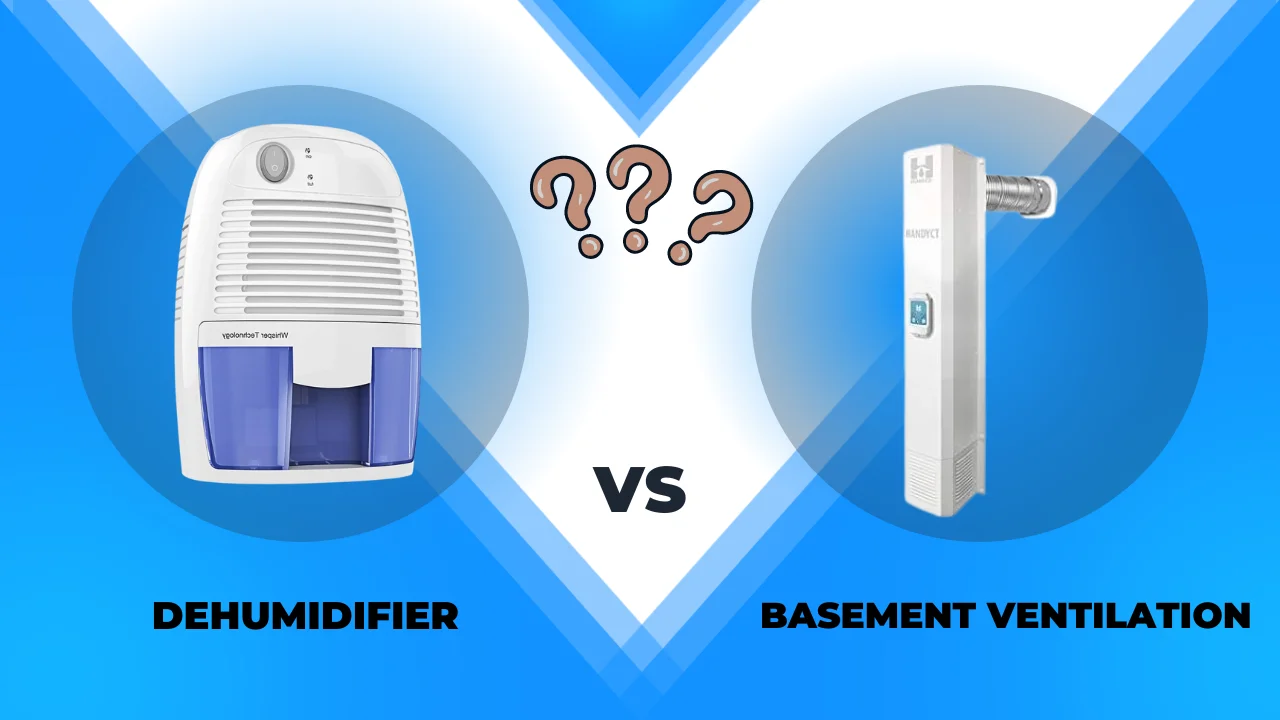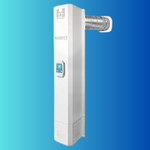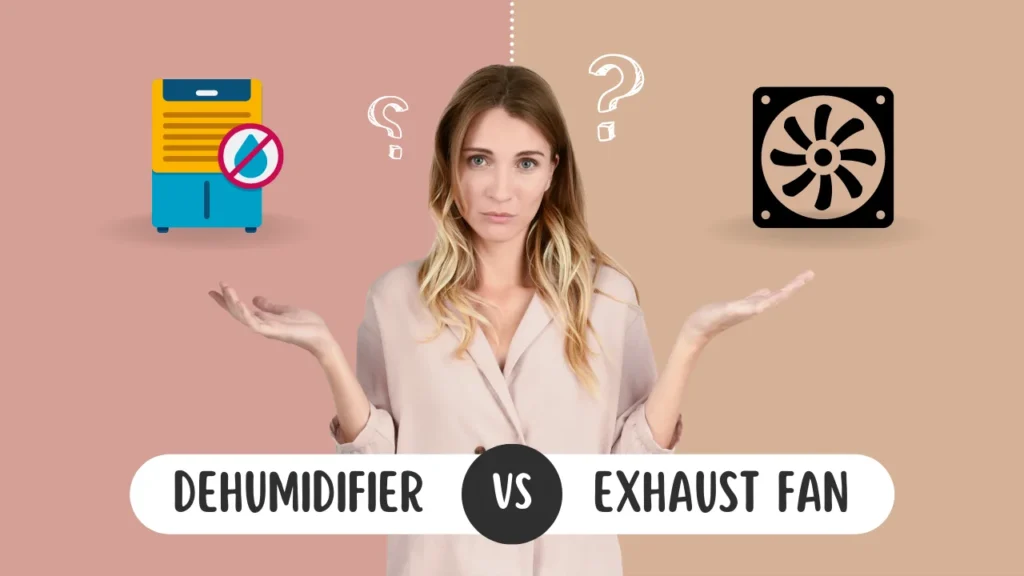Basement ventilation systems and dehumidifiers are two of the most popular options for keeping a basement dry and comfortable. Both offer great benefits, but they come with different sets of advantages that should be considered when choosing the right solution.
Basement ventilation system vs dehumidifier: *Basement Ventilation System: Improves air circulation and removes stale air, but may not be as effective in extremely humid environments. Higher installation costs. *Dehumidifier: Removes excess moisture independently of external conditions, more affordable and easier to install. Ideal for targeted moisture control in basements.

Whether you choose one or the other depends on your specific needs — pick wisely for maximum comfort!

DEHUMIDIFIER

BASEMENT VENTILATION SYSTEM
Key difference between Basement Ventilation system vs Dehumidifier:
- Purpose
- Effectiveness
- Maintenance
- Cost
- Energy Efficiency
Purpose:
A basement ventilation system is designed to improve the quality of indoor air by allowing fresh, outside air to circulate throughout the space. It can also reduce moisture levels, making it a great option for those looking to prevent mold and mildew growth.
On the other hand, a dehumidifier is used mainly as a source of humidity control. While it doesn’t provide any significant improvement in air quality, it does help keep moisture levels low and effectively prevents any water damage or mold growth from occurring.
Effectiveness:
When it comes to effectiveness, basement ventilation systems and dehumidifiers have different strengths.
A ventilation system is best for tackling long-term moisture issues, increasing air quality, and reducing energy costs. It works by replacing the stale indoor air with fresh outdoor air — this allows the humidity levels to be naturally controlled without any additional effort on your part.
On the other hand, a dehumidifier is better suited for situations where immediate humidity control is needed. Thanks to its powerful motor and internal condenser coil, it can quickly reduce moisture in the air while preventing mold growth at the same time.
Maintenance:
Basement ventilation systems and dehumidifiers are two different tools used to address humidity in basements. While they both help improve air quality, there are differences between the two types of systems when it comes to how they function and the maintenance required for each system.

A basement ventilation system is designed to bring fresh air into a basement by using either fans or an HRV (Heat Recovery Ventilator). The fan will draw temperature-controlled, filtered air from outside into the basement while expelling stale, humid air back outdoors.
This process helps reduce moisture levels in a basement as well as improve indoor air quality by removing odors and pollutants. In order for a ventilation system to work properly, it needs to be inspected and cleaned on a regular basis. The fan blades, filters and motor need to be checked for dust buildup, and the ventilation ducts need to be cleaned of dirt and debris.
A dehumidifier is an electrical device that reduces moisture levels in a basement by removing water vapor from the air. The dehumidifier collects the moisture in a container or expels it outdoors through the exhaust system. While most dehumidifiers require minimal maintenance, it is important to periodically empty the collection container as well as clean and replace air filters regularly.
It is also important to check power cords, thermostats and other components for any signs of wear or damage, as these can affect how efficiently the unit runs.
Cost:
The cost of a basement ventilation system can vary widely depending on the type and size of the system you choose. The most basic systems start at around $500, while more advanced models can run up to several thousand dollars. It is also important to factor in installation costs as well as any additional accessories that may be needed such as ductwork or insulation.

Dehumidifiers are generally cheaper than basement ventilation systems, with average prices ranging from $100-$300. While this is usually the case with smaller units, larger commercial grade dehumidifiers can easily cost over two thousand dollars.
On top of this, it is important to consider energy costs when choosing a dehumidifier for your basement since these devices draw significant amounts of electricity to operate. This can cause your energy bills to increase depending on how often you run the unit.
Energy Efficiency:
Basement ventilation systems are more energy efficient than dehumidifiers because they use the air exchange process, which draws temperature-controlled, filtered air from outside into the basement while expelling stale, humid air back outdoors.

This method of ventilation helps reduce moisture levels without using electricity to operate a motor or compressor like a dehumidifier would. Since ventilation systems usually run on an hourly cycle (12 hours per day), they consume less energy in total compared to a dehumidifier that runs continuously (24 hours a day).
In comparison, most small dehumidifiers use 20 – 30 watts of power for every hour they are running and require continuous operation in order to be effective at reducing moisture levels. As a result, they consume more energy in total compared to a ventilation system.
Noise Levels:
Basement ventilation systems and dehumidifiers both help improve air quality in basements, but there are some differences in noise levels between the two.

A basement ventilation system typically operates quietly and only produces a low hum or whirr sound when running. This type of system is ideal if you are looking for a quiet solution that won’t disturb other family members or neighbors.
Conversely, dehumidifiers tend to be louder than ventilation systems due to their internal fans and motors. They produce humming noises as they run and can be quite disruptive if used near living spaces.
Installation Considerations:
When it comes to installation considerations, basement ventilation systems and dehumidifiers have different requirements. A basement ventilation system requires a more intricate setup compared to a dehumidifier and usually includes ductwork, insulation, and an HRV (Heat Recovery Ventilator) or fan for air exchange.
This type of system is often best installed by a professional due to the complexity of the setup and should be done with care as any mistakes can lead to reduced efficiency or improper function.
On the other hand, dehumidifiers are much easier to install as they do not require additional components like fans or ductwork. All that is required is finding a suitable location in your basement for the unit, plugging it into a power outlet, and ensuring the exhaust hose is correctly connected.
While this process can usually be accomplished with minimal effort, it is important to make sure the unit is level in order for it to work correctly.
Personalizing Your Basement Climate:
Personalizing your basement climate is a great way to make sure you have an optimal living environment in your home. Depending on the size of your space and the level of humidity, there are two main options for controlling the moisture levels in your basement: Basement ventilation systems and dehumidifiers.
Basement Ventilation Systems: These systems are designed to bring fresh air into a basement by using either fans or an HRV (Heat Recovery Ventilator). The fan will draw temperature-controlled, filtered air from outside into the basement while expelling stale, humid air back outdoors. This process helps reduce moisture levels in a basement as well as improve indoor air quality by removing odors and pollutants.
Dehumidifiers: These electrical devices are designed to reduce moisture levels in a basement by removing water vapor from the air. The dehumidifier collects the moisture in a container or expels it outdoors through the exhaust system. While most dehumidifiers require minimal maintenance, it is important to periodically empty the collection container as well as clean and replace air filters regularly.
Both systems have their advantages, but one option may be better suited for your particular situation than the other.
Conclusion:
Both basement ventilation systems and dehumidifiers are effective at reducing moisture levels in a basement. However, when it comes to cost and energy efficiency, ventilation systems tend to offer more advantages. While they can be more expensive upfront than dehumidifiers, they generally require less maintenance due to their air exchange process and consume less energy overall since they run on an hourly cycle.
Related F.A.Qs:
Does home ventilation use electricity?
Yes, home ventilation systems typically use electricity to run the fan or blower motor. The amount of energy used can vary depending on the type and size of system you choose.
How often should a dehumidifier be cleaned?
Most dehumidifiers require minimal maintenance but it is important to periodically empty the collection container as well as clean and replace air filters regularly. It is also important to check power cords, thermostats and other components for any signs of wear or damage. Depending on usage, it is recommended that a dehumidifier be inspected and serviced at least once every 12 months.
Are basement ventilation systems worth the cost?
Yes, basement ventilation systems are worth the cost because they can help reduce moisture levels in your basement, improving air quality and making it more comfortable to live or work in. They are also more energy efficient than dehumidifiers since they use the air exchange process instead of electricity to operate a motor or compressor.



